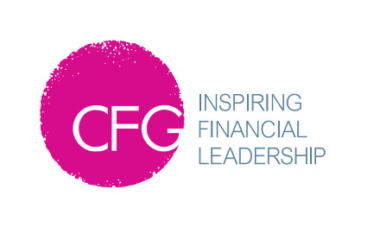Charity Finance Group raided its free reserves to the tune of £187,510 last year to carry out a change programme and move offices, its latest annual report and accounts reveal.
The umbrella body for charity finance personnel finished the 2013/14 financial year with free reserves of £61,586, down from £249,096 the previous year.
The organisation’s original budget for the year had targeted an unrestricted reserves figure of £180,000 to £225,000, but the trustees decided to adjust the target after reviewing the main risks to the organisation and its working capital.
The annual report just published states: “The trustees agreed in the second half of the year to vary the budget and the reserves target for the year as the time was right to implement a significant change programme and relocation.
“Reserves are there to be spent in furtherance of CFG’s objects and this change programme was wholly aligned to that primary purpose.
“Clearly the office relocation and the change programme has absorbed a significant part of the brought-forward reserves but the trustees considered the risk of not acting to be a greater risk to the sustainability of CFG.”
Just one of the new leadership team remains
In January CFG announced the establishment of a new senior leadership team. Tania Cohen was appointed as director of services and enterprise; John Ingamells was hired as director of policy and engagement, and Jacqui Porritt was installed as the new director of resources.
Jane Tully, the organisation’s head of policy and public affairs, was also promoted to the new role of deputy director of policy and engagement, reporting to Ingamells.
However, in March Jacqui Porritt left, in April Jane Tully quit for a new job as head of insight and engagement at the Money Advice Trust, and Ingamells stepped down in May.
The post of director of resources is currently being filled by an interim, Tom Kelman, and the umbrella body is still looking at how to staff its policy and engagement department.
The report states: “During the period of restructure the use of fixed-term contracts and freelance contractors enabled CFG to continue its activities and service while fundamentally reshaping the organisation. All staff are directly engaged in activities in furtherance of our objects and their cost has been allocated accordingly.”
It added that for 2014/15 the target should be to achieve at least a balanced financial budget and for CFG to build up its reserves over the next three years after two years of setting deficit budgets.
Overall, CFG was able to grow its income by 9 per cent during the year to £1.68m but expenditure also increased, by 13 per cent to £1.8m.
Individual member numbers grew by 4 per cent to 2,337, while charity members fell 1 per cent to 1,354. Free secondary members and paid additional members both increased by 12 per cent. Membership subscriptions contributed 40 per cent of overall revenues, down from 46 per cent in 2013.
'We are a small charity'
In their introduction to the report, chair Ian Theodoreson and chief executive Caron Bradshaw stated: “It has been an incredibly challenging year for the organisation which has witnessed possibly the most profound shift to date in how we operate.
"It is often forgotten that CFG is a small charity with all the difficulties that small charities face. For instance our ICT systems include a blend of legacy and later packages, hardware which requires investment and updating and, as always, insufficient resources to do everything we aspire to do.
“The board and staff have again worked closely, managing risk, taking decisive action and concentrating on our charitable objectives. We are confident that we will deliver our ambitious targets for growth and reach in 2014-17.
“Whilst there is still much to do we believe CFG is now fit for the future.”
CEO: Our calculated risk is paying off
In a statement, Bradshaw added: "In what was generally a tough year we are pleased to have increased our overall income, excluding donated goods and services, by 7 per cent.
"At the same time we embarked on a major change programme which required a significant investment from our reserves.
"However this year, on the back of our most successful annual conference ever, in May, with 15 per cent more delegates attending, and unprecedented levels of booking for our Sorp training sessions, with over 1,000 bookings already, I am confident our calculated risk is paying off.”
Tania Cohen also told Civil Society News this morning that CFG's high-profile policy work such as the Pensions Maze has been "no less of a priority for us and we have continued to deliver a high level of activity despite the vacancy, with Caron covering the director role and with me also working with the policy team.
"My team (services and enterprise) has also had brilliant results since the changes, with high levels of member engagement, our most successful annual conference ever, and we exceeded our target for the year of 1,000 bookings for Sorp briefings and training at the end of July – six months earlier than anticipated."









